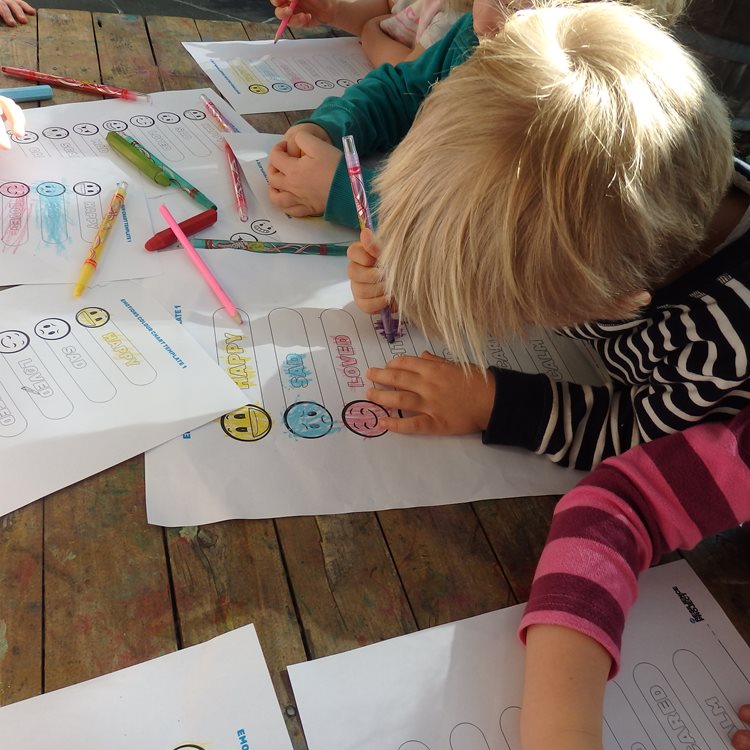The Resilience Project was inspired by co-founder Hugh van Cuylenburg’s visit to a remote village in India. He was blown away by the villagers' happiness despite their poverty, which led him to make some “simple conclusions about the things we need to be doing here in Australia if we want to be happier”.
“I learnt from this village that practising gratitude, empathy and mindfulness leads us to a happier, more fulfilling experience. Once I discovered these three principles were also evidence-based, I decided to share these simple and highly effective well-being strategies in a school program. Ten years on, having worked with over 1,000 schools, it turns out it wasn’t just schools that wanted to hear this message! I am grateful to work with teachers, students, parents, workplaces, community leaders and sporting clubs every day.”
The Resilience Project now offers a 21-week educational program for early childhood education and care settings linked to the Early Years Learning Framework.
About Raleigh Street Community Children’s Centre
Raleigh Street Community Children’s Centre (Raleigh Street) is a community-managed, not-for-profit long day care service situated in a quiet residential street in the Melbourne suburb of Thornbury.
An Exceeding service, with just 37 places, Raleigh Street enjoys a stable team of qualified teachers and educators, an enviable waiting list, and a highly educated and skilled parent committee situated in a state (Victoria) which has put early childhood firmly on its agenda.
The future is bright for Raleigh Street. But as with other education and care services, many educators, committee members, and families face significant challenges on a day-to-day basis.
As a result of rolling illness and infection and a shortage of casual staff, educators at the service often find themselves deprived of planning time to ensure ratios are met—a reality many services face that has significant impacts on well-being. In addition, committee members, who are volunteers, have faced challenges while juggling their responsibilities as approved providers alongside work and home commitments. Families have also faced many financial and time pressures, the effects of which are often passed from parents to children.
Implementing The Resilience Project’s Early Years Program
To address the rising well-being challenges faced at the centre, educators at Raleigh Street are trialling The Resilience Project’s Early Years Program—a 21-session program with activities, webinars and resources designed to give educators, children and families strategies to boost resilience. At the time of writing, they were 15 weeks into the 21-week program.
The core tenets of the program are centred around gratitude, empathy, mindfulness and emotional literacy. The program has been mapped against the EYLF, and activities are designed for children aged 3-5.

Educational Leader Rieke Mattiesch says the program has been very valuable but requires a time commitment. She estimates it has involved around 50% of educators’ intentional teaching time but that it has provided children with language to better manage conflict, name emotions and practise kindness.
Raleigh Street is no stranger to well-being in its educational practice, with an in-house yoga program and books such as “It’s ok to be different”, “Our House”, and “Have you filled a bucket today?” already being used to support children’s learning in relation to each of the EYLF outcomes.
Rieke says the program has dove-tailed very well into existing practices, as well as providing useful tools for families and educators.
“The activities are not really relevant for our educators working with babies and younger children. But we presented the program at a curriculum day, and the educators found it really valuable to reflect on the questionnaires provided about their own daily habits to boost resilience and the importance of their role as educators in role-modelling practices which boost resilience, such as expressing gratitude, or demonstrating empathy.”
The other aspect of the program is family involvement. Families are encouraged to contribute to a Resilience Journal, and feedback from the Raleigh Street community has been incredibly positive It has provided a talking point for families to reflect on their own resilience practices at home. Many have said they found it useful, particularly in the context of the many stresses of the past few years.
Who would benefit most?
In terms of which services would benefit most, educators at Raleigh Street say the program is comprehensive and could be used by any educator, but new educators, in particular, may find it particularly valuable because it provides many ideas for learning activities.
2021 data from the Australian Early Development Census indicated that an increased number of children were vulnerable in terms of emotional maturity and physical health. As the pandemic has also taken a toll on the mental health of many adults, any opportunity to improve educator skills related to well-being will be a positive step.
Information about The Resilience Project’s Early Years Program is available here.
RUOK Day is holding a virtual event on Thursday, 8 September, at noon - register here.
About CELA
Community Early Learning Australia is a not for profit organisation with a focus on amplifying the value of early learning for every child across Australia - representing our members and uniting our sector as a force for quality education and care.